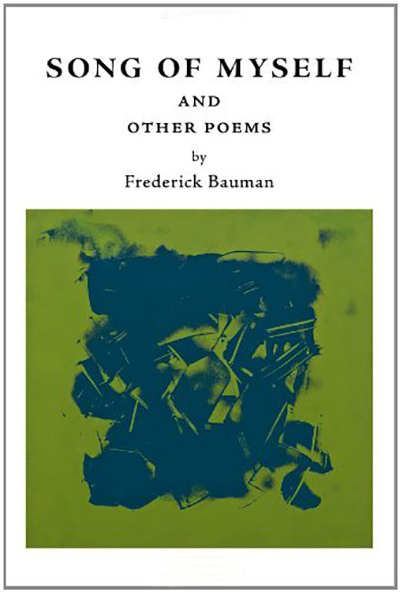
His attack is not so much on economic injustice as on the harmful effects of the love of money on everyone, rich and poor. The poet thus gives us his strongest protest against inequitable distribution of wealth in the society (his own times, especially in the years following the Civil War, created a disparity in wealth that has only recently been equaled in our own era of economic and social policies favoring Wall Street and the wealthy). Reminding us again of how “Song of Myself” is primarily an urban poem, Whitman gives us the perfect lines about being a single self among many: “This is the city and I am one of the citizens,” whose impressions and interests all intersect and overlap, potentially creating a democratic oneness of experience. “My head slues on my neck,” the poet says, capturing the always shifting and turning perspective of this poem, its lines like eyes and ears that are continually changing focus and direction. Whitman creates, with his repeated “Ever,” a sense of the eternal recurrence and change that he has observed and celebrated throughout the poem: life goes on, people are born and people die, and yet there are “ever” the same “eaters and drinkers,” the same “inexplicable” questions that generation after generation keeps asking and never answering, the same gnawing desires (“that breath of itches and thirsts”), the same wickedness and goodness, the same love, the same death: it’s all one flowing “liquid of life,” moving like a river that is from day to day an entirely different river (the waters have changed completely) and yet the same river. So the poet imagines his voice rising above the chorus but in harmony with it, speaking to and for “the crowd,” who surround him and help define him: he is not just talking about his intimates but those who are strangers (those many “folks” who are “no household of mine”). Each one of us, Whitman suggests, is a “United States,” an identity composed of many different identities, discordant voices, varied moods, conflicting ideas. That is why Whitman is always emphasizing the empathic self, an “I” that can see in itself the potential to be everyone else in the culture, that can sense within the individual self the variety of selves visible in the nation.


It is “a call in the midst of the crowd,” a voice launched among the “folks around me.” Whitman is always concerned with the persistent democratic problem of the individual and the community, the one and the many, what he called “the simple separate person” and the “En-Masse.” The secret of democratic success is in the negotiation of the always shifting emphasis on one person’s rights and the rights of all, and this negotiation is closely tied to the problem of how we maintain our single separate identity when we fully empathize with all others. As we enter the last one-fifth of the poem, Whitman summons up his voice for the climax, like an opera singer preparing for the final aria.


 0 kommentar(er)
0 kommentar(er)
